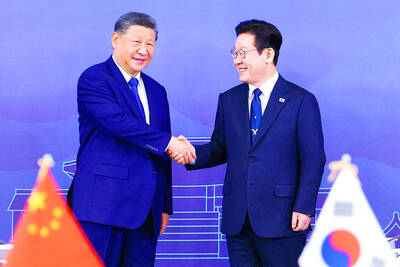Academics from around the world have protested to Germany's federal prosecutor about the arrest and detention of a Berlin sociologist who is accused of associating with a terrorist group -- apparently on the basis of his academic work.
Andrej Holm, from Berlin's Humboldt University, who specializes in urban gentrification, was arrested three weeks ago on suspicion of aiding a militant organization suspected of carrying out more than 25 arson attacks in Berlin since 2001.
In protest letters the academics from across Europe, the US and Canada said Holm's arrest was based on his academic writings, and the evidence used to connect him to terrorism was at best flimsy.
The federal prosecutor's office arrested Holm on Aug. 1 under paragraph 129a of the anti-terrorism law, citing the repeated use of words such as "gentrification" and "inequality" in his academic papers, terms similar to those used by the urban activist organization "militante gruppe" (mg).
According to the prosecution report the frequency of the overlap between words used by Holm and the group was "striking, and not to be explained through a coincidence."
It also cited the fact that he had twice met three men who were arrested on suspicion of involvement in an arson attack in Brandenburg on July 31 and who are accused of belonging to the mg. The prosecutor's office said it added to the "conspiratorial circumstances" that he did not take his mobile phone to the meetings.
The fact that he and another academic had access to a library meant they were "intellectually in a position to compile the sophisticated texts of the `militante gruppe,'" the prosecutor's office said.
In one of the letters, signed by more than 100 academics, the federal prosecutor, Monika Harms, was urged to release Holm from his single-cell in Berlin's Moabit prison.
"We strongly object to the notion of intellectual complicity adopted by the federal prosecutor's office in its investigation ... such arguments allow any piece of academic writing to be potentially incriminating," the academics said.
Holm, 36, made a name for himself with his research into the effect of urban renewal on residential areas of the German capital since the fall of the Berlin Wall.
"The police may have solid knowledge they are withholding, but their public statements belong in the realm of farce," Richard Sennett, a sociologist at the London School of Economics, and Saskia Sassen, a sociologist at Columbia University, wrote on the Guardian's Comment is Free site.
"This action in a liberal democracy seems more to fall into Guantanamo mode than genuine counterespionage," they said.

‘CHILD PORNOGRAPHY’: The doll on Shein’s Web site measure about 80cm in height, and it was holding a teddy bear in a photo published by a daily newspaper France’s anti-fraud unit on Saturday said it had reported Asian e-commerce giant Shein (希音) for selling what it described as “sex dolls with a childlike appearance.” The French Directorate General for Competition, Consumer Affairs and Fraud Control (DGCCRF) said in a statement that the “description and categorization” of the items on Shein’s Web site “make it difficult to doubt the child pornography nature of the content.” Shortly after the statement, Shein announced that the dolls in question had been withdrawn from its platform and that it had launched an internal inquiry. On its Web site, Le Parisien daily published a

China’s Shenzhou-20 crewed spacecraft has delayed its return mission to Earth after the vessel was possibly hit by tiny bits of space debris, the country’s human spaceflight agency said yesterday, an unusual situation that could disrupt the operation of the country’s space station Tiangong. An impact analysis and risk assessment are underway, the China Manned Space Agency (CMSA) said in a statement, without providing a new schedule for the return mission, which was originally set to land in northern China yesterday. The delay highlights the danger to space travel posed by increasing amounts of debris, such as discarded launch vehicles or vessel

RUBBER STAMP? The latest legislative session was the most productive in the number of bills passed, but critics attributed it to a lack of dissenting voices On their last day at work, Hong Kong’s lawmakers — the first batch chosen under Beijing’s mantra of “patriots administering Hong Kong” — posed for group pictures, celebrating a job well done after four years of opposition-free politics. However, despite their smiles, about one-third of the Legislative Council will not seek another term in next month’s election, with the self-described non-establishment figure Tik Chi-yuen (狄志遠) being among those bowing out. “It used to be that [the legislature] had the benefit of free expression... Now it is more uniform. There are multiple voices, but they are not diverse enough,” Tik said, comparing it

RELATIONS: Cultural spats, such as China’s claims over the origins of kimchi, have soured public opinion in South Korea against Beijing over the past few years Chinese President Xi Jinping (習近平) yesterday met South Korean counterpart Lee Jae-myung, after taking center stage at an Asian summit in the wake of US President Donald Trump’s departure. The talks on the sidelines of the APEC gathering came the final day of Xi’s first trip to South Korea in more than a decade, and a day after his meeting with the Canadian prime minister that was a reset of the nations’ damaged ties. Trump had flown to South Korea for the summit, but promptly jetted home on Thursday after sealing a trade war pause with Xi, with the two